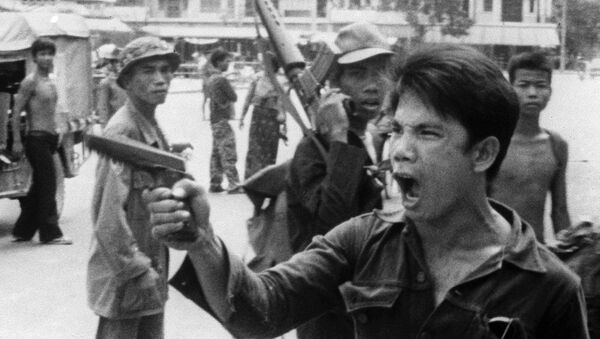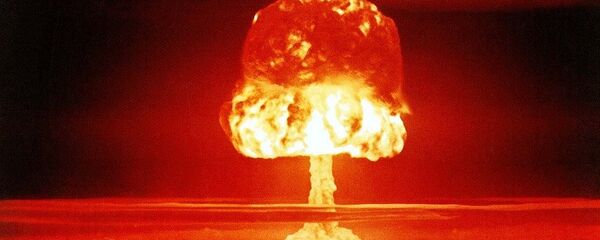Former Democratic Kampuchea head of state Khieu Samphan and chief Khmer Rouge ideologist Nuon Chea were found guilty of genocide, crimes against humanity and war crimes by a UN-backed tribunal in Phnom Penh, Cambodia, the Phnom Penh post has reported.
Samphan, 87, and Chea, 92, are the two most senior living former leaders of the ultra-Maoist group which seized control of the Southeast Asian country in 1975 and proceeded to enact policies which led to the deaths of between 1.6 and 1.8 million Cambodians, or a quarter of the country's population.
The tribunal was the first official acknowledgement that Cambodians were subjected to an orchestrated "auto-genocide" while under Khmer Rouge rule through starvation, overwork and mass executions.
Friday's ruling found the two men guilty of genocide against the minority Cham people and ethnic Vietnamese, along with a litany of other crimes. Samphan and Chea were symbolically sentenced to life in prison, adding to the life sentences they were previously given in 2014.
Around 500 Cambodians, UN representatives, members of the Cambodian government and foreign diplomats were on hand for the verdict, which was read after a lengthy trial which lasted four years.
Tribunal spokesman Neth Pheaktra called the trial "part of the process of providing justice for the victims who were killed during the Democratic Kampuchea regime, as well as for those who survived," and said the pronouncement of the verdict was "a historical event for the Khmer Rouge tribunal, for Cambodia and for the world, as well as for international justice."
The Khmer Rouge Tribunal, officially known as the Extraordinary Chambers in the Courts of Cambodia, was formed in 2006 under an agreement between the UN and the Cambodian government to bring senior Khmer Rouge leaders to justice. To date, three individuals, including Samphan and Chea, have been convicted out of five former Khmer Rouge leaders indicted. Khmer Rouge leader Pol Pot did not live to see the UN-backed trial, dying under house arrest in 1998.
Due to Cold War competition with the Soviet Union, the United States opposed the Vietnamese invasion of Cambodia, slapping Hanoi with sanctions and blocking IMF loans to the country. The US and its allies allowed the Khmer Rouge to retain Cambodia's seat at the UN years after the group was removed from power. Washington also provided covert military assistance to Khmer guerrillas fighting the Vietnamese-backed government, a fact which was conclusively confirmed by WikiLeaks in 2015 with the release of hundreds of thousands of US diplomatic cables from 1978.





